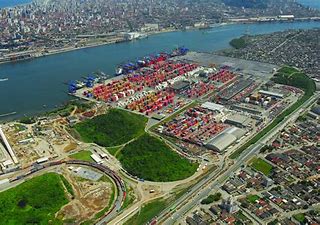Total investment is up to R$15 bn to build more than 700 kilometers of new tracks until 2025
11/04/2022
/i.s3.glbimg.com/v1/AUTH_37554604729d4b2f9f3eb9ad8a691345/internal_photos/bs/2022/b/Q/BTn90dQQm8NyolsR8nIg/04emp-100-rumo-b2-img01.jpg)
Beto Abreu — Foto: Claudio Belli/Valor
Cosan’s logistics company Rumo approved on Thursday the start of works to extend its rail network in Mato Grosso. The construction works are expected to begin this year and gain traction as of 2023, said CEO Beto Abreu.
This is a large venture to extend Malha Norte (Northern Network) from Rondonópolis to Lucas do Rio Verde, with more than 700 kilometers of new railroads. The total value of the investment is projected at R$14 billion to R$15 billion.
The project, however, is expected to be built in stages. The first phase, which will cost R$4 billion to R$4.5 billion and start now, will be 210-kilometer long and link Rondonópolis to Campo Verde. This stretch is expected to be concluded by the end of 2025 so that operations can start in the first quarter of 2026.
With the first stage of the project, Rumo is expected to increase the railroad’s capacity from the current 25 million tonnes per year to 35 million tonnes per year. This increase of 10 million tonnes is the first step. The terminal to be built in Campo Verde is expected to reach a capacity of up to 30 million tonnes. “It will depend a lot on the expansion of the market and the speed of the construction of the railroad to Nova Mutum,” said Mr. Abreu.
The idea is to build the terminal in partnership with a strategic partner. A preliminary agreement has already been signed, but the name of the group has not yet been disclosed.
This first stretch of the railroad is the most complex and costly, according to the executive. “From the engineering complexity standpoint, the trickiest part is the beginning. We will have a challenge from start, which is the construction of a 1-kilometer-long bridge across Rio Vermelho. The other two remaining stretches are easier.”
The project foresees a branch line to the capital Cuiabá and another to the north of the state, reaching Nova Mutum and Lucas do Rio Verde. The railroad is expected to be completed between 2028 and 2029.
The construction works were delayed by a few months because the Federal Prosecution Service (MPF) required that the company consult the indigenous peoples of the Boe Bororo people, from Tadarimana e Teresa Cristina villages, who live on land close to the project.
After negotiations involving prosecutors, the Public Defender’s Office, the indigenous peoples, and the company, an agreement was signed on Thursday allowing the construction of the project to begin, with the commitment that Rumo will consult with the indigenous peoples.
The construction works begin this year with the first viaduct over BR-163, a highway that intersects with Rumo’s railroad in its first kilometers. In early 2023, construction begins to gain more traction, said Mr. Abreu.
Financing for the construction work is expected to use different sources of funds. “The company’s mantra is to operate in the coming years with a leverage ratio between 2 times and 2.5 times [net debt-to-EBITDA]. Considering our expectation of cash generation, we will move forward with the necessary funding,” the executive said.
The Malha Norte expansion project is innovative from a regulatory standpoint. Unlike other large railroads in the country, the project will be carried out under an authorization model. This means the project is in private hands, with no government counterparts. Besides, it is a state contract – not a federal one – that was signed with the Mato Grosso government in September last year.
Mato Grosso Governor Mauro Mendes (Brazil Union), who suggested the project to Rumo, was reelected in the first round last month. Mr. Abreu said that the election of Luiz Inácio Lula da Silva (Worker’s Party, PT) to the presidency does not impact the company’s plans. “We have our strategy regardless of the new administration that takes office in January. We have operated under the Bolsonaro and Lula administrations. No matter which party is in power, our strategy continues.”
*By Taís Hirata — São Paulo

